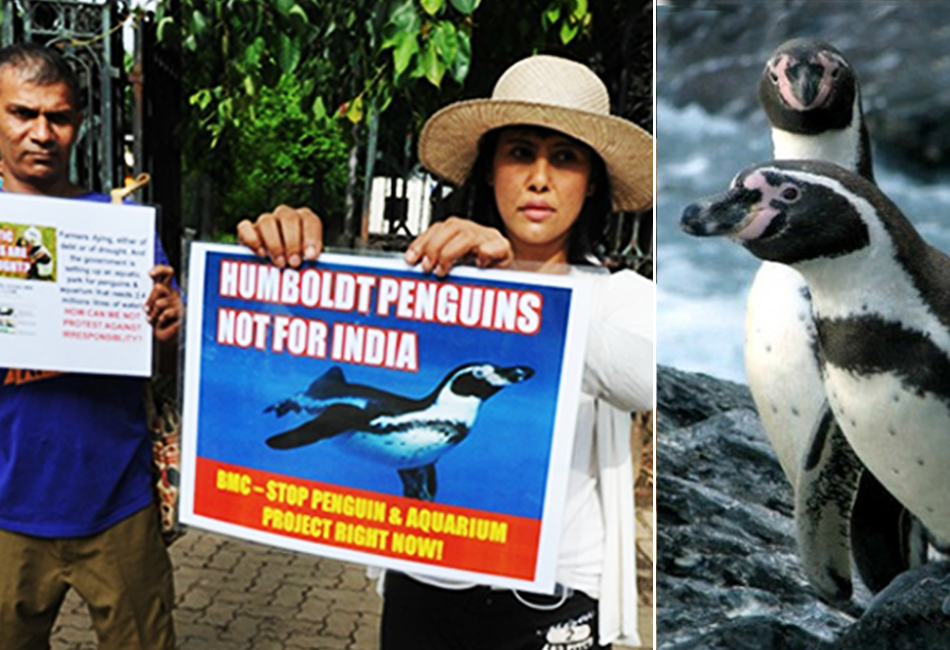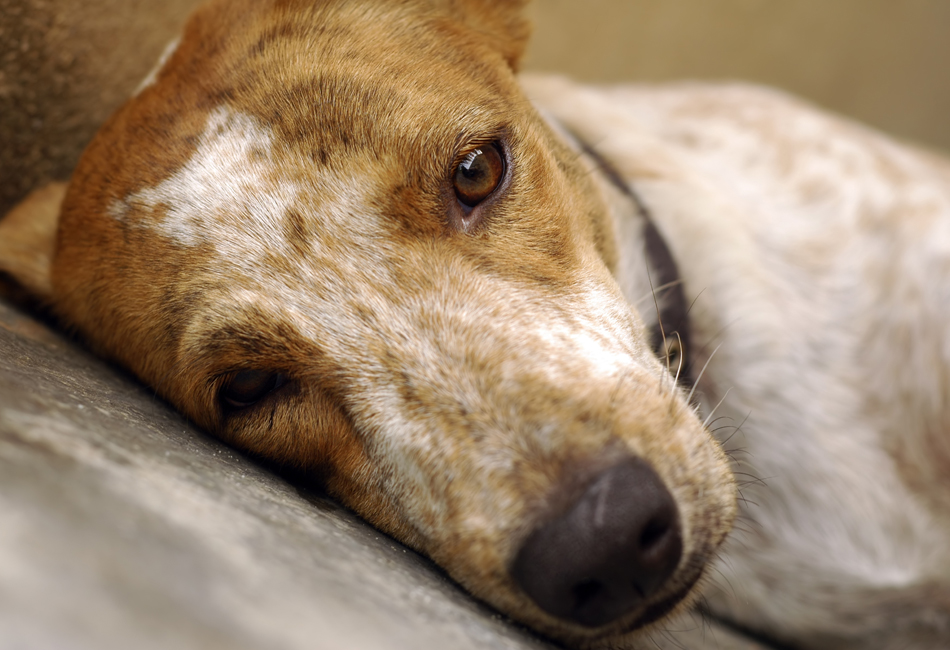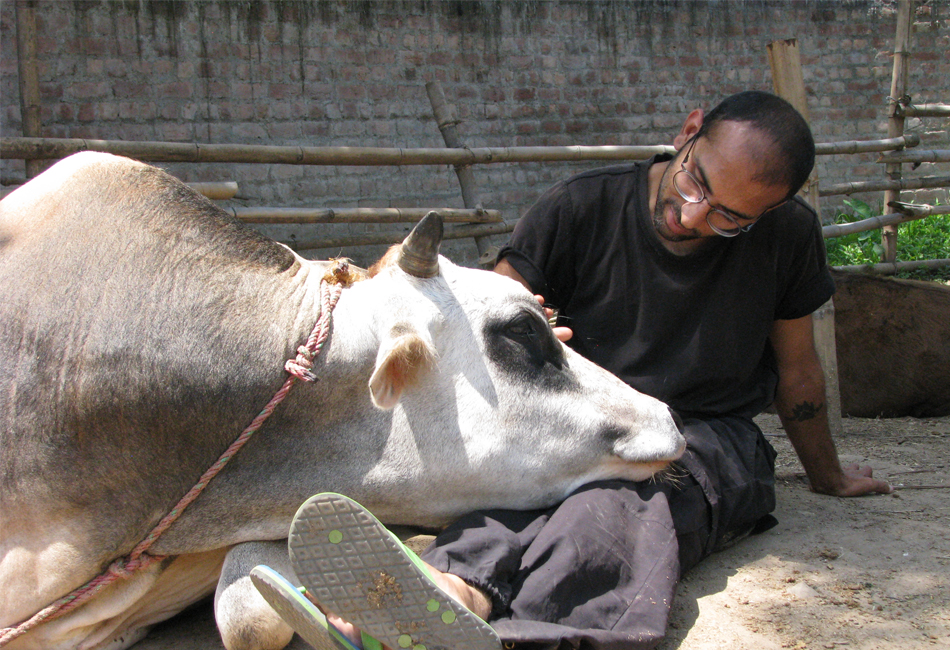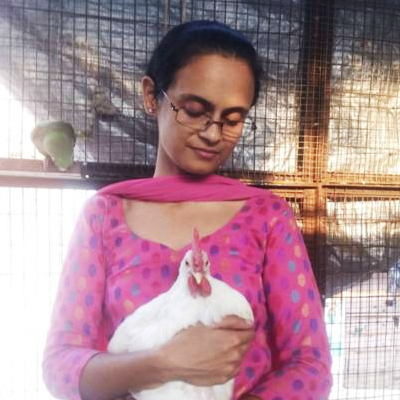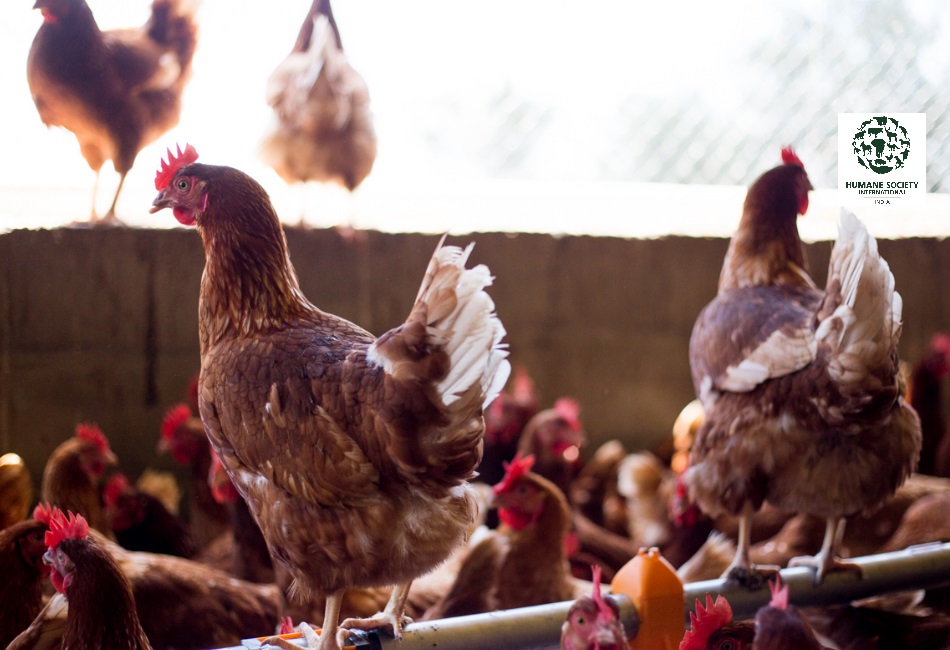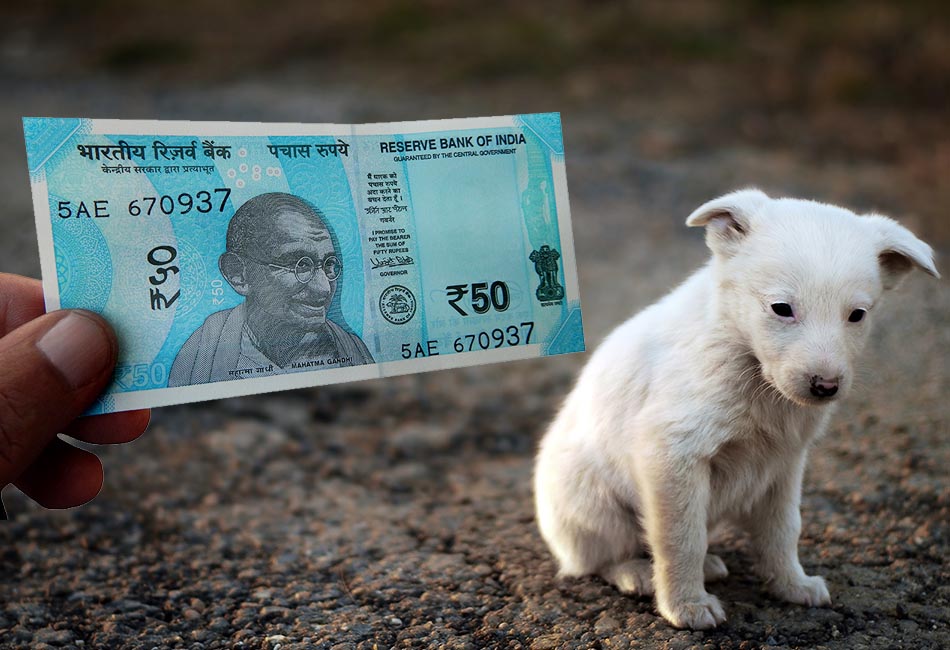Download Free Vegan Starter Kit -
.jpg)
HSI India Launches India’s Leadership Programme For The Animal Protection Movement
We are living in a decade that truly matters – one that will decide the fate of the future generations to come! And as we continue to recalibrate our place in nature, transformational leadership to steer industries sustainably becomes an obligatory assignment. Industrialised Farm Animal Production (IFAP) practices have largely taken over traditional methods of animal agriculture since the 1980s in India, thereby exacerbating several problems - animal welfare, environment, and public health. Identifying and uplifting the non-linear impacts of animal agriculture on the complex and interdependent ecosystem in which we subsist and operate is a pressing priority.
In its commitment to uplift the welfare of farm animals and strengthen the work required for the social and the agricultural sector to understand the importance of inculcating animal welfare, HSI/India has launched the first of its kind Farm Animal Protection Leadership Programme in India. The programme is a transformative platform to bridge the current talent gap that exists in the sector and enable sustainable leadership, by the creation of a motivated and skilled workforce for long-term Farm Animal Protection (FAP) work in India.
Why Farm Animals?
The poor animal welfare practices in industrialized facilities increases the susceptibility to infectious diseases. These facilities, that follow high throughput production methods raise animals of a single breed in confined and highly controlled conditions to get uniform and reliable production of meat, milk or eggs. Amplification of zoonotic diseases in such facilities is a high risk factor as large numbers of animals are raised in limited geographical areas.
It is not an exaggeration by any degree to say that the next global pandemic might be already brewing in a factory farm somewhere given the hazardous operations of intensive animal agriculture. It is far-fetched to talk about eliminating epidemics without decreasing the chances of the next one. But, certainly achievable by adopting more sustainable agriculture practices and fundamentally restructuring our food systems to reduce our dependence on animal-based proteins.
The best practices of 3R policy (Replace, Reduce, Refine) can be instrumental in steering this change by bringing to the table better policies for enhanced animal welfare, work with corporates and consumers to enhance adaptations of plant-based proteins. The leadership enabled through the Farm Animal Protection Leadership Programme will catalyze the cultural change and fundamentally reduce our reliance on animals for food and thereby reduce concomitant disease risk.
.jpg)
Situational Analysis
Despite the burgeoning evidence that foregrounds the inherent issues of animal agriculture, the industry grows unabated creating more reservoirs of human-animal interface for zoonotic spillovers. The issue persists due to deeply entrenched socio-cultural, religious, and political factors that compartmentalise farm animals as ‘food’, compounding the inability to look past the instrumental value of animals - to their inherent value.
The demand anywhere for farm animals' welfare is evaluated from both the citizen’s perspectives and consumers’ perspectives, and the preference-gap that subsists in the two perspectives constitutes the tight spot for the governance of farm animal welfare. The disproportionate allocation of resources that puts the welfare of farm animals lower on the resource allocation scale is one major concern. Even though farmed animals constitute over 90% of animals raised and used by humans, the resource in their welfare coffer is barely anything in relation to the work that the sector requires. Research into the matrix of resources and cause prioritization in the U.S. speaks for the scale and neglect in animal advocacy. Considering the livestock population (535.78 million- 2019 livestock census) and the insufficient resources dedicated to this sector, the welfare picture wouldn’t vary much.
However, the gradual but steadily growing shift in public perception and the enhanced recognition of the issue by animal protection groups is encouraging.
.jpg)
Foraging New Grounds: Farm Animal Protection is Going Mainstream
What casts a long shadow over the welfare of farm animals is not just the paucity of leadership but also the limited knowledge on the importance of animal welfare among the current leaders and policy makers. The sector is an emerging sector and holds a lot of opportunities for individuals committed to the cause of farm animal protection and sustainability. There are several vacancies and uncreated job positions in the farm animal protection sector. The deficit persists due to the knowledge gap about the scope the sector holds for long-term work opportunities.
Lack of parity with the mainstream-in terms of compensation, talent acquisition, growth opportunities, job security, professionalism, and respectability are also a contributing factor to the insufficiency of skilled human resources. Upscaling efforts to stimulate the sector is a precursor to developing the potential in this sector.
The improvement of the farm animal protection sector is a joint responsibility and challenge for many stakeholders that operate in the sector. Different stakeholders curate different frames of reference to evaluate animal welfare standards that are guided by multiple situational and environmental factors. Over the past few years, farm animal welfare has shot up the priority list of stakeholders and is no longer perceived as a niche option. The need to work on farm animal protection issues in conjunction with other overlapping unsustainable structures is being increasingly realised.
However, the improvements to farm animal welfare are only possible through systemic change. To usher in this systemic transformation, changemakers who share the vision of farm animal protection will play a pivotal role. The programme is going to steer this change by enabling the leadership and technical skills of the next generation of change-makers. It will help identify the vital career link between various sectors- animal agriculture, climate, and environmental change, food and nutrition, public health, and livelihoods. Considering the overarching reach of this subject, we acknowledge that everybody is a stakeholder in this change and holds the potential to be a changemaker.
What is the Farm Animal Protection Leadership Programme and Why Should You Apply?
The programme is an excellent opportunity for individuals working towards farm animal protection and animal advocates to upskill and identify more opportunities for employment in the sector. It is also open to candidates who have volunteered for animal causes and even those with no volunteering experience but interested to further farm animal welfare. The programme also welcomes experts from different parts of the development sector, who see the strong connections between farm animal protection, climate change, human welfare and health. This programme will act as an additional academic career opportunity for professionals such as agricultural students, veterinarians, public policy students too.
It will provide a gateway to learn leadership skills and technical skills from seasoned coaches and build a network with peer leaders in the sector. There are renowned experts and leaders from across the world and India who are part of the program. Some of them are, Jeff Sebo, Director, Animal Studies MA Program, New York University; Joyce Tischler, Co-Founder, Animal Legal Defense Fund; Dr. Michael Greger, Founder, nutritionfacts.org; Gauri Maulekhi, Trustee, People for Animals; and Nuggehalli Jayasimha, Co-Founder and COO, Global Food Partners; amongst many other subject matter experts.
Remember the image that would conjure up in our minds when we heard the word farm animals? Truth be told, that image is far from reality. Should we dare to imagine a world where farm animals run free in the meadows? Yes! Do you see yourself as a part of a converging world where causes intersect to create a kinder world for all? If yes, you are the changemaker we want onboard! Come, join us to change the narrative for farm animals, people, and our planet.
Apply Here
Visit their website for more details.
AUTHOR

trending
Be a Vegan First Informer
Send us buzzworthy news and updates
Explore
Contact Us
About Us
Stay Connected
Copyright ⓒ 2017-2023. VEGAN PASSION PRIVATE LIMITED. All Rights reserved.
For more information, please write to hello@veganfirst.com
Registered Office Address: 55, 2nd floor, lane 2, Westend Marg, Saidullajab, Near Saket Metro Station, New Delhi, Gadaipur, New Delhi South West Delhi, DL

2.png)

.png)
.png)
2.png)
2.png)
2.png)


1.png)

